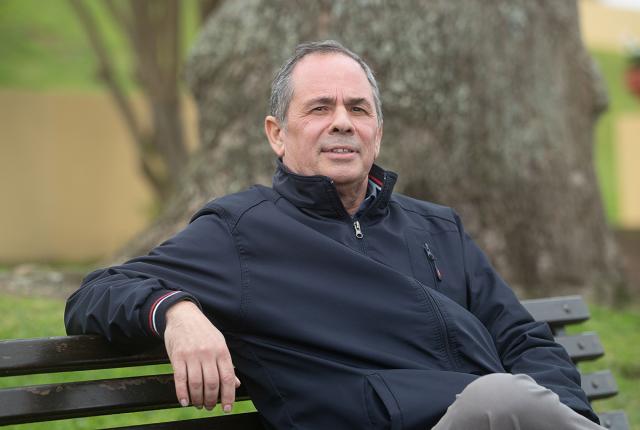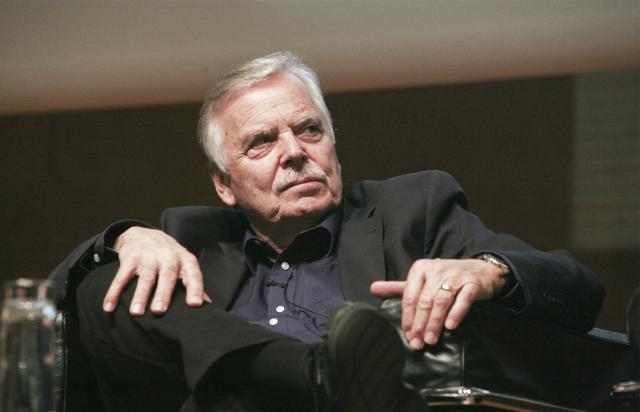The fishing sector ended 2022 with 1.6 tons less fish caught but with more income, an increase of 3.7 million euros. What are these figures due to?
From the data analysis, we find a reduction in weight of all species in the auction in the order of 14%, but an increase in value of 10%, which corresponds to about 3.7 million euros more than 2021.
Essentially, if we have less fish – and it is a fact that happens all over the world, the decrease of wild fish – the tendency is for prices to increase. On the other hand, the results are related to the management model that we implemented for some species and that allowed for a positive balance of the average auction price, which went up from 15 to 20% from 2021 to 2022. There was a significant increase in almost all species in the average auction price, which means that these values imply less weight but more income.
This is something we have been working on: to fish better and to get more income. It is not to do with the quantities but with the actual handling and maintenance of the fish: fishermen are paying more and more attention to this.
The data that is not so positive for us is related to tuna. These are global data, totals for all species, but when we look at the tuna data, it's not so good. We had a 21% reduction in catches and 6% less in values. The numbers of landings were lower than 2021 and the sales values are still, in our opinion, low, which determines the drop in income at first sale and which has an impact on the results throughout the fleet.
We must admit that in this species there is more work to do, not only on our part of the production, in the catch, but also in the sale, because, both for the industry and for fresh sales, the values are far below desirable.
What values would be the fairest?
For us, in the bigeye species, it is still unacceptable to sell tuna at less than 2€per kilo. This proposal has been discussed among partners, namely the Federation, APASA (Association of Tuna Producers and Similar Products of the Azores), and Coopescamadeira (Fishing Cooperative of the Madeira Archipelago): the possibility of increasing the minimum size in this species and seeing a better management model that allows us, as has happened with other species, to get more income.
We don't know if it will be possible and if we will have an understanding for 2023, but that is what we have to do. Other management models in other species have been successful and have to be applied to tuna.
What are the Federation's concerns for 2023?
The year 2022 was difficult for the fishing sector, as it was for other economic sectors in the Region, due to all the effects caused by the increase in inflation and the invasion of Ukraine by Russia, which significantly increased costs in production, marketing and industry.
In the case of production, fuel represents more than 50% of our costs; in July 2022, it was 77% more expensive than at the same time in 2021. Therefore, even though fish values have risen 10%, this increase in sales has not reflected much in profit for the fisherman, because of the high costs in production.
What we are predicting for 2023 is that this will again be a big problem for fishing, the rise in fuel prices, and that it will affect the entire fleet segment, more specifically the tuna fleet, because they are larger vessels. If there is no support for ship owners, there will be many vessels tied up and prevented from carrying out their activity in a normal way.
Then, there is great concern and pressure in the sector for the reduction of quotas, particularly in red seabream, which we kept at 600 tons without increases, and the bigeye, which is not suffering any increase and sooner or later may suffer a reduction. We are talking about species that largely contribute to the fishermen's income. We are very concerned and we have been very demanding in relation to the application of quotas, because we fish in a very artisanal way and we do not understand how we still suffer these cuts. All these rules coming from Europe, even from the Scientific Committees, we think cannot happen and we have no doubt that they will jeopardize many fishing companies.
For this very reason, we will need to review the entire fishing sector in the Azores. The resources available, the quotas applied to us and the fleet that we have: we will have to rethink everything.
In addition, the lack of manpower in some fishing communities is increasingly worrying. With the exception of Rabo de Peixe and São Mateus (Terceira Island), all other fishing communities suffer from lack of labor and young labor.
I would also point out the issue of fleet renewal: we still have an aging fleet and the available Community support does not match the reality of our fleet. The support is more focused on large fleets and is not aimed at small-scale fishing. We hope that the new FEAMPA (European Maritime, Fisheries and Aquaculture Fund) will bring some openness. From what we have understood, it seems not: Europe turns its back on the artisanal fleet.
And finally, the issue of fishermen's pensions and the Wage Compensation Fund, which we believe should be called into question and revised in 2023. What has been happening in the fishing sector is unacceptable, with fishermen having miserable pensions, and it is time we find a solution to this.
What kind of pensions are we talking about?
About 150, 200€. It is impossible to survive like this. Many fishermen retire at 50, 55 years old, due to the wear and tear of their profession, but then many end up going back to fishing. It's not a dignified situation in any profession and it should be discussed, including with Social Security, the whole government. We have a collective agreement that is already in place and we can use this instrument to perhaps solve this situation. The application of a Wage Compensation Fund could also solve this situation.
How about Fundopesca?
The latest amendment to Fundopesca, which is being proposed by the Secretariat, is slightly better than the one before, there is a slight increase, and it is more in line with what we want. But we think that there is still a lot to do in this area, because, you see, paying a fisherman 300 euros because he didn't go out to sea is still very little.
We think that it will have to be reviewed, probably by giving up the idea of Fundopesca and talking about this Wage Compensation Fund, in which no fisherman should receive less than the regional minimum wage every month.
Have the fuel subsidies announced been sufficient?
The support we got was positive, otherwise probably many of the boats would not have continued their activity. But, you see, we were left with 1 million Euros for fuel for the production part; we have no doubt this amount will fall far short of what is desirable. And, if things do not change, we might need this fleet support every year. The models and application of these funds must also be reviewed – some fleet segments present values below what is desirable; but we have no doubt that this measure applied in 2022 will have to be applied again in 2023 and the values will have to be higher than the ones we had last year.
It was good support, it made sense, and it helped the fleet, but there has to be continuity. Even though we are selling fish for a higher average price, it does not compensate for the expenses we have with fuel.
Can the increases in interest rates and energy costs prevent investments in the sector?
Without any doubt. It will be almost impossible for investments to happen at this stage. We are hostages of a community support that does not meet the needs of our fleet and that is why we insisted that the Azorean Regional Government move forward in 2023 with the credit line to support the fishing sector. The credit line will not solve the problem, but at least it is a mechanism that allows a shipowner to apply. And, we hope, with low interest rates.
What’s the Federation position regarding marine protected areas?
It is an issue that concerns us. We have been calling out attention to how this will be applied, because we are being punished in other ways, such as with quotas, and, if the implementation of the marine protected areas is not done in a conscious way, it could jeopardize the entire sector.
This can greatly reduce fishing activity, and can cause an increase in imports, which is something we cannot allow to happen. And so we believe that there is a certain exaggeration in the application and in the percentage of marine protected area in the Azores. Looking at other parts of the country and even of Europe, we do not understand the reason for this focus on the Azores as a marine protected area.
We know that there are other interests, but we will not allow them to limit our activity even more. About 3 thousand fishermen depend directly on this sector, but indirectly, be it families, industry, shipbuilding, it is a universe of 7 to 8 thousand people. We need to be very careful and concerned about this.





